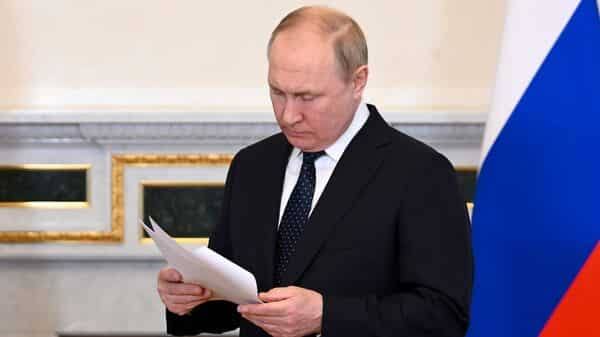Will Pakistan Defy G7 price cap on Russia oil?

The United States which is unable to coerce India, is now pressurizing Pakistan to follow the Group of Seven (G7) price cap in order to get the best price deal for the import of Russia crude oil, and reiterated its commitment to bilateral energy cooperation under the ‘Green Alliance’ framework.
In an exclusive interview, State Department Assistant Secretary for Bureau of Energy Resources Geoffrey Pyatt backed the Turkmenistan-Afghanistan-Pakistan-India (TAPI) pipeline and the Central Asia-South Asia (Casa) projects as part of American coercive diplomacy.
Pyatt visited Pakistan accompanied by a multiple-agency delegation to signal the US commitment to a very strong partnership and also to reflect on the important transitional moment that has arrived.
He said that the TAPI and Casa projects were part of American diplomacy to connect regions, adding that Washington would not give up on these projects despite the challenges after the Afghan Taliban returned to power in Kabul.
Pyatt said that the United States supported the vision of regional connectivity. “We saw the benefits of energy security and the benefit for Central Asian countries as they can diversify the options for exporting energy resources,” he added.
Indicating that there were more challenges after the Taliban returned to power, he said: “This does not mean we are giving up the vision of regional connectivity. This is a principle of American energy diplomacy worldwide.”
In the interview, Pyatt mentioned two significant transitions emerging in global energy. One’s Russia, which being the largest oil and gas explorer, he said, had weaponised oil and gas against Europe.
He cited the consequences of the war in Ukraine, which led to a spike in gas prices last year. He said that the spike in prices even began before February when Russian President Vladimir Putin first “weaponised gas supplies” against Europe…….what a funny stamens coming out of US official. It is they who weaponized things by first boycotting Russian oil and later putting a price cap over someone else’s oil ( Russian oil ) in the first place
He added that in the current war, Russia would never be viewed as a reliable energy supplier again, and “this has significant implications for every country where energy is important”, including Pakistan……..Well Russia has shown other wise and India and China will both vouch for it.
“Pakistan, like Bangladesh, India, and other developing countries, became victims of Gazprom’s actions,” he said. “Russia is not a reliable energy supplier,” he added, speaking about the much-talked-about oil deal between Pakistan and Russia…..please please do not include India in this. Also Gazprom is only victimizing all enemy’s of Russia that is Western Europe etc.
Pyatt hoped that Pakistan conducted negotiations with Russia for crude oil supply “as hard as it can” to drive the best possible price, stressing that the G7-Plus post-mechanism on crude oil had set the leverage for Russian oil import to Europe.
“This is a buyer’s market when it comes to Russian crude oil, it is a good time for Pakistan to get the best price that they possibly can,” he said, emphasising that the best price cap regime with G7 countries was intended to do two things, simultaneously.
“Firstly, the objective is to reduce the resources that Russia gets from its oil and gas, which were going directly to fund the war; and secondly, the objective is to avoid further disruption of supplies in the international market,” he explained.
“The policy aims to empower countries like Pakistan or India, who are still doing business with Russia to hopefully make their position stronger in negotiations to get the best possible price.”…….ha ha and ha with sentiments expressed towards India.
Regarding the energy cooperation with Pakistan, Pyatt said that Islamabad and Washington had a formal structure for energy dialogue, which was hosted at the Pakistani Ministry of Power.
“We focus on how we can work together to accelerate Pakistan’s energy transition to support the Pakistani government’s efforts to deliver energy at a cost that is sustainable for the economy and citizens,” Pyatt said in the interview.
“Expanding energy access in a developing country like Pakistan is one of the interesting aspects of this energy revolution, which offers solutions for microgrids, off-grids, and rooftop solar energy systems,” Pyatt continued.
He believed that there was a “real opportunity” for Pakistan. “We have agreed to prioritise the partnership between private sectors. Therefore, I have visited Lahore to meet with leaders of the business community to see what is happening on the ground.”



